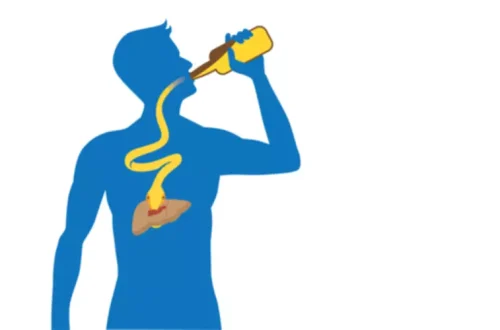Overcoming the Fear of Always Being Sober

I wondered how in the world was I ever going to attend a social event that served liquor. I thought I had to avoid everything drinking or drug related, or else I would be toast. As I matured, I never fully grew out of this class clown/funny guy phase. Instead, I started getting high and I thought that it was the answer to all of my problems. I was at camp with my two best friends at the time.

What are Some of the Most Common Recovery Fears?
- You can spend more time pursuing your passions, building relationships, or simply enjoying life without the constraints of alcohol.
- For years, I worried about the impact of sobriety on my social life.
Now you have pinpointed what is causing your fear of sobriety, it is time to examine those fears. You might be reading this and hating where you are right now but at the same time, terrified of the alternative. However, if you continue to let your fears rule your life you will never break free of the cycle. It is time to manage your fears and put them into perspective so you can move on, get the support you need without fear holding you back. Licensed medical professionals review material we publish on our site.
Why You Shouldn’t Be Afraid to Get Sober
Sober movements are redefining what it means to have fun and challenging alcohol’s role in our social lives. In my mind, sobriety meant Friday nights alone on my couch, watching Netflix and hiding from the rest of the world who was definitely out drinking. For years, I worried about the impact of sobriety on my social life.
Why Choose Eudaimonia Recovery Homes?
- Do not allow COVID-19 to stop you from seeking the care you need.
- Worried that they may be abandoned by the people they love or judged by others, some people refuse to admit that they have a drug problem or reach out to others for support.
- On the other, you’re scared to death of what sobriety will do to your world.
- I did that for the longest time, even though I wanted to quit drinking, when I thought of sobriety I felt afraid.
- If you are struggling with alcohol or drug addiction, don’t let the fear of being sober and reclaiming your life stop you.
- These tools could be exercise, prayer, meditation, or AA meetings.
Help is usually not so far as all you need to do is make the resolution and then seek a drug rehabilitation center that suits you. You may be beating yourself down and thinking that you cannot get rid of the habit but that couldn’t be further from the truth. Your new friends at the rehab and beyond will give you the strength you need to stay sober. Sobriety allows you to reconnect with who you really are. Alcohol often masks insecurities or unresolved issues, and when you remove it, you’re able to confront your true feelings and desires.

The Number Two Reason Why a Sober 2019 Terrifies Us
Strengthening your coping strategies and possibly adjusting your recovery plan can help prevent future setbacks. Most importantly, maintain a compassionate attitude toward yourself and recognize that recovery is a journey with ups and downs. Getting sober means fear of being sober replacing your primary coping mechanism – drugs and alcohol – with new, unfamiliar ones. The process can be uncomfortable, particularly for someone who is afraid of feeling in general. Staying stuck in this fear generally means staying stuck in addiction.

They will be filled with optimism for the future and will look forward to recovery. A few days later, they may retreat into themselves, under the fear of losing their sobriety and falling back into the trap that is an addiction. Fighting drug addiction is probably one of the hardest battles of one’s life and so it makes all the sense that an addict would doubt their ability to win this battle. Loved ones usually reach out in a bid to help, but they are shut down by the addict who believes that they can do it alone.
You make it up to everyone you ever hurt by never being that person again. You’ll get significantly better at identifying the kind of people you genuinely enjoy being around, which is much harder to do when everyone is vibing off overpriced cocktails in dimly lit bars. If you’ve typically required a little social lubricant to lighten up at parties (as many of us have), navigating social scenes without liquid courage can be scary. This is particularly true for the introverted among us. Don’t expect to accomplish any big self-realizations in the beginning.

What are the first steps to take if I’m afraid to become sober?
With friends, if they aren’t on board with your sobriety, you’ll have some tough choices ahead. The good news is that you don’t have to worry about it until you’ve got some solid, sober days under your belt. A lover of words, tea and trees, my gift is helping you to quit drinking in a way that feels good so you can return to yourself and find your own Sober Bliss. Write a list of everything that scares you about quitting drinking. From the small to the big, the trivial to the ridiculous.
- You don’t know how to handle your emotions in a healthy way.
- Psychological dependence involves the emotional and mental processes related to developing and recovering from a substance use disorder or process addiction.
- Sobriety fatigue can last for a few weeks to a few months, and in rare cases of post-acute withdrawal, it can even extend up to two years.
- Recognizing and naming our emotions is key to improving relationships.
- I don’t think it’s change that you’re so afraid of.


